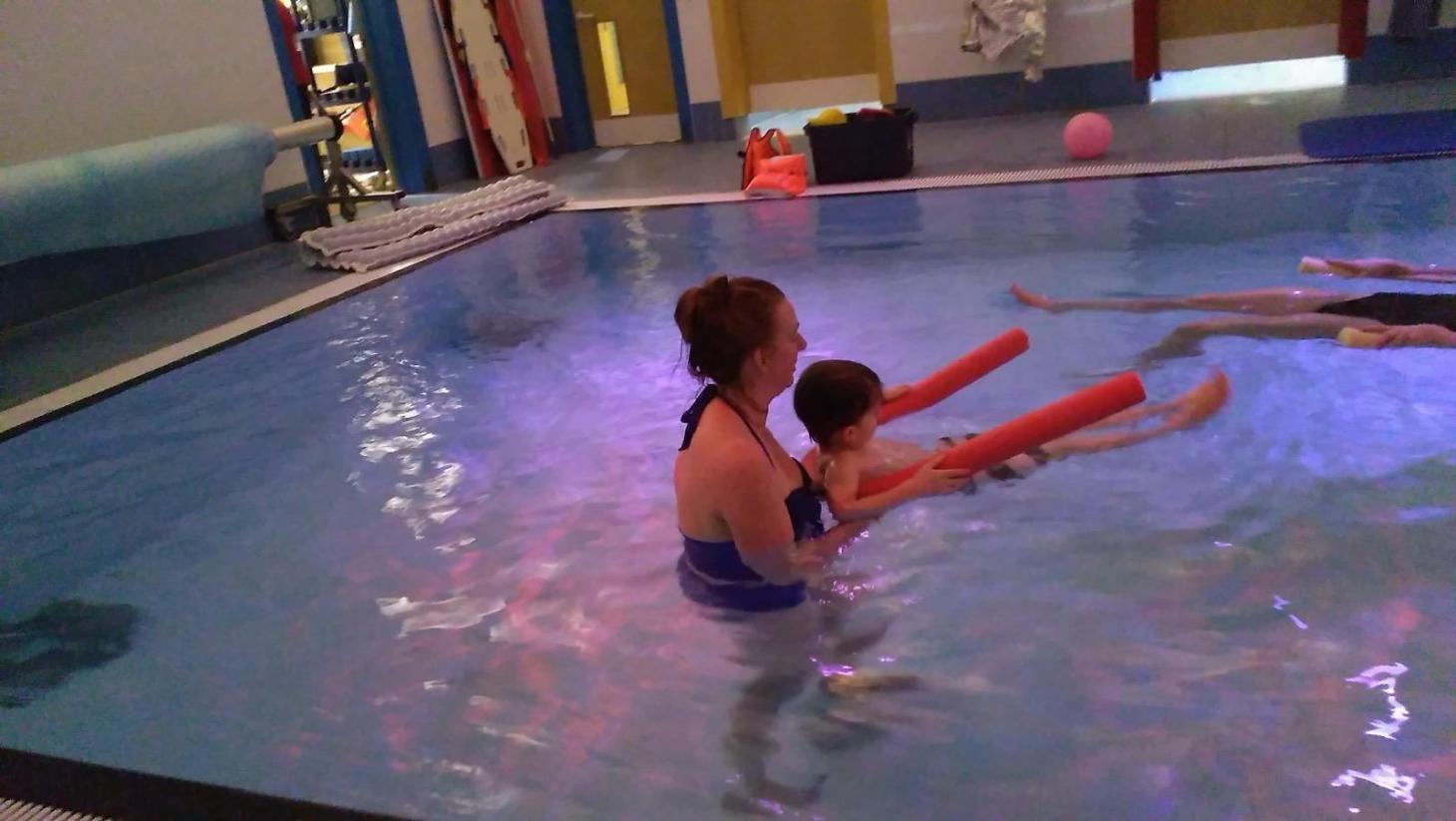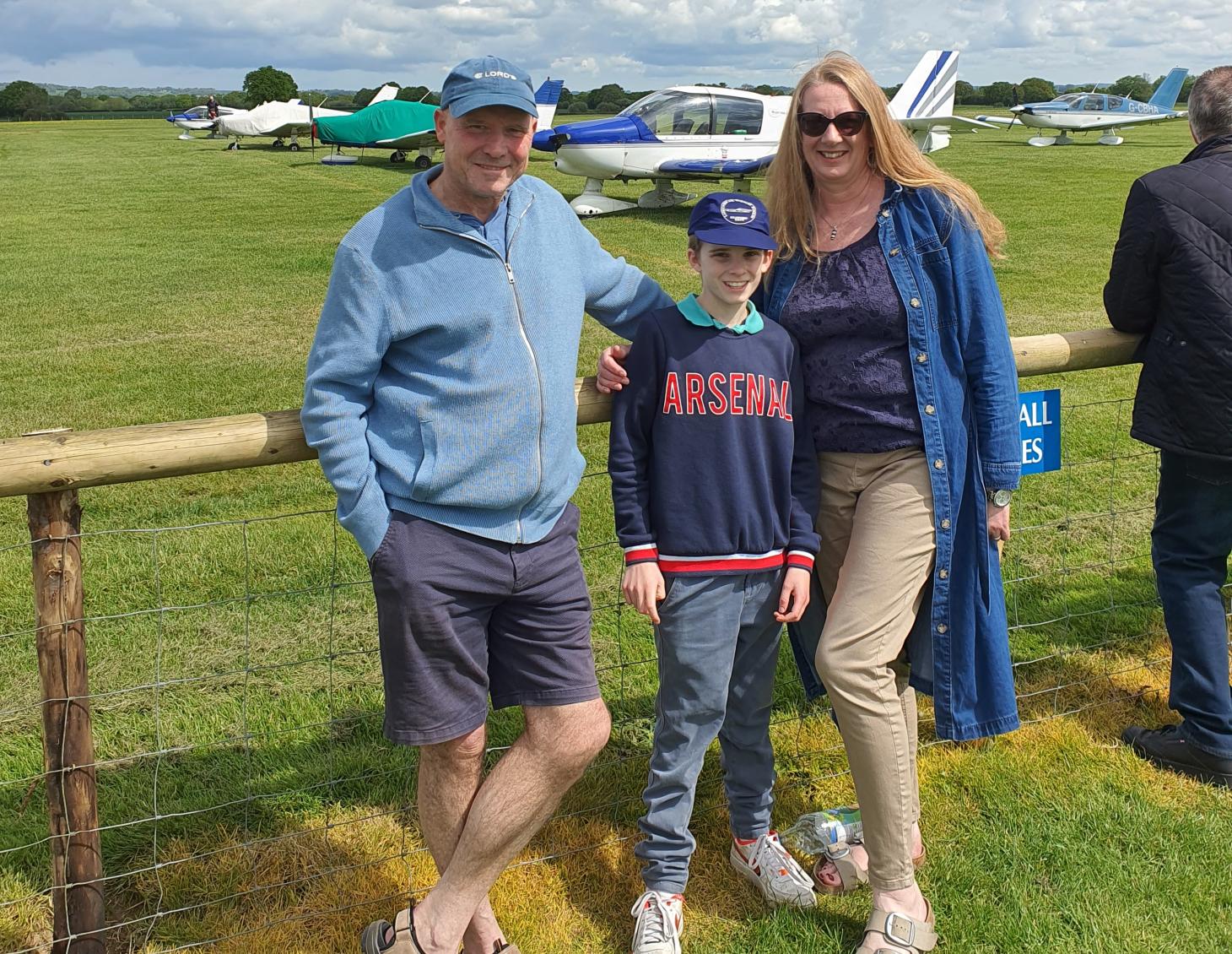“Volunteering allows him to be part of something bigger”
Samuel was just four years old when it was discovered that he had a brain tumour. Followed by challenges like Posterior Fossa Syndrome, a key moment in his rehabilitation journey came in 2016 during his time at The Children’s Trust.
Volunteering in a shop has since become an important part of his life. His mum, Karen, shares their inspiring story with us.
In 2015, Samuel, now 14, was diagnosed with a brain tumour at the age of four. Over about six months, and before his diagnosis, his family noticed changes. He began limping, showing weakness on one side and changes to his personality. Neurological tests led to an MRI, revealing a mass on his brain stem. He was quickly referred to King's College Hospital. Due to the tumour’s size, the first surgery aimed only to remove fluid. After surgery, Samuel developed Posterior Fossa Syndrome (PFS), leaving him unable to walk, talk, control his limbs, or sit up.
In 2016, he began a four-month rehabilitation placement at The Children’s Trust, a period that marked a crucial phase in his recovery.
We speak to Samuel’s mum, Karen, to find out more.
How did you feel when you first arrived at The Children’s Trust?
It was difficult transitioning from the hospital environment to a place that encouraged independence with so many therapies on offer. We were used to sleeping beside him every night in the hospital, so moving to a setup where he had his own room was a big adjustment. Letting go and allowing him to gain independence was hard, but being in such a beautiful, open setting and getting outside was amazing - a real breath of fresh air.

What was your experience of the rehabilitation process?
The rehabilitation process was incredible. Seeing all these therapies available in one place was a bit overwhelming at first, but exactly what Samuel needed. He had access to music therapy, hydrotherapy, and even joined the glitter club and singing club. Hydrotherapy, in particular, was fantastic because he struggled with mobility and strength, so it was a great way for him to work on that while also enjoying himself. As a family, we really valued that time together.
Were there any standout memories or moments?
One of the most significant moments was seeing him socialising again. The staff were always on hand, allowing us as parents to step back and encourage his independence. He was only five at the time, and as parents, you naturally want to help, but suddenly that ability was taken away from both him and us. Watching him regain that independence was incredibly special.
We know living with a brain injury can be challenging. What coping strategies have you developed as a family?
We've found that being open has been key; talking to family and friends, sharing our journey on social media, and connecting with other families in similar situations. There is so much power in support and well-wishes. We’ve always believed in not sugar-coating things but finding the positives in what has happened.

How is Samuel doing now?
In 2019, he had a second surgery when the tumour started to grow back. They couldn’t remove all of it due to its location, so he underwent 18 months of chemotherapy to stop its growth. He finished chemo last June, and in the past month, he has started to regain strength and stamina.
Have you noticed any changes in his skills or confidence since starting to volunteer?
When Samuel decided to do the Duke of Edinburgh Award, he immediately wanted to volunteer at The Children’s Trust. He feels a real connection to the shops and always makes a special effort to go in whenever he can. He doesn’t remember much of his time at The Children’s Trust as he was five, but it feels like a full-circle moment.
What has been the most rewarding part of watching him volunteer?
He was nervous at first and wanted us to go with him, but he quickly gained confidence. Now, we don’t even need to take him - he goes in on his own and is much more relaxed. He has built great relationships with the staff, and volunteering has helped him conquer his anxieties and nerves. It’s been a real confidence boost.
What do you hope he gains from his experience?
I hope it gives him a sense of purpose and something worthwhile to be a part of. He’s helping others for a cause that means a lot to him, and even though he still experiences fatigue, he remains committed. It’s been great to see that dedication and his desire to give back.
Do you have any messages for others going through similar experiences or about the impact of volunteering?
Reaching out to others who share your experience is incredibly important. There’s something powerful about being understood without having to explain yourself. At times, it can feel isolating, not knowing where the journey will lead. Volunteering helps connect you with others and offers hope that there is a way forward, even if everyone's path looks different.
Being part of something bigger is essential for all of us. While I can't speak for Samuel, as the patient, he has always been the centre of attention—but volunteering shifted the focus to someone else, creating a sense of shared purpose.
“Since he was four, everything has revolved around his treatment and recovery. Volunteering allows him to be part of something bigger - a small piece in a much larger effort, working alongside others to make a positive impact. That’s something truly special.”
Explore all our volunteering opportunities now and get involved today.
